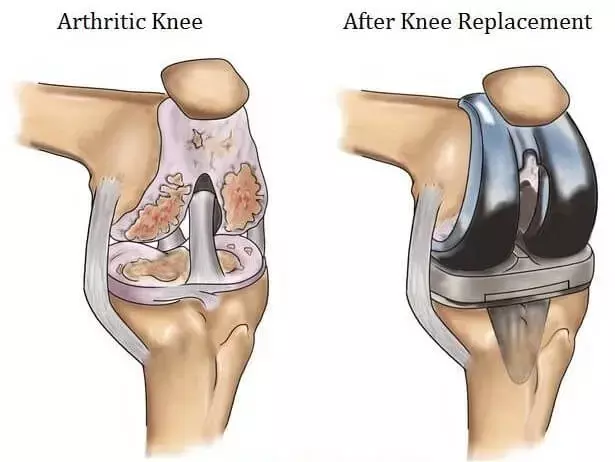- Home
- Medical news & Guidelines
- Anesthesiology
- Cardiology and CTVS
- Critical Care
- Dentistry
- Dermatology
- Diabetes and Endocrinology
- ENT
- Gastroenterology
- Medicine
- Nephrology
- Neurology
- Obstretics-Gynaecology
- Oncology
- Ophthalmology
- Orthopaedics
- Pediatrics-Neonatology
- Psychiatry
- Pulmonology
- Radiology
- Surgery
- Urology
- Laboratory Medicine
- Diet
- Nursing
- Paramedical
- Physiotherapy
- Health news
- Fact Check
- Bone Health Fact Check
- Brain Health Fact Check
- Cancer Related Fact Check
- Child Care Fact Check
- Dental and oral health fact check
- Diabetes and metabolic health fact check
- Diet and Nutrition Fact Check
- Eye and ENT Care Fact Check
- Fitness fact check
- Gut health fact check
- Heart health fact check
- Kidney health fact check
- Medical education fact check
- Men's health fact check
- Respiratory fact check
- Skin and hair care fact check
- Vaccine and Immunization fact check
- Women's health fact check
- AYUSH
- State News
- Andaman and Nicobar Islands
- Andhra Pradesh
- Arunachal Pradesh
- Assam
- Bihar
- Chandigarh
- Chattisgarh
- Dadra and Nagar Haveli
- Daman and Diu
- Delhi
- Goa
- Gujarat
- Haryana
- Himachal Pradesh
- Jammu & Kashmir
- Jharkhand
- Karnataka
- Kerala
- Ladakh
- Lakshadweep
- Madhya Pradesh
- Maharashtra
- Manipur
- Meghalaya
- Mizoram
- Nagaland
- Odisha
- Puducherry
- Punjab
- Rajasthan
- Sikkim
- Tamil Nadu
- Telangana
- Tripura
- Uttar Pradesh
- Uttrakhand
- West Bengal
- Medical Education
- Industry
Use of steroids before total knee arthroplasty tied with less postoperative pain: Study

The use of High-dose steroids in high pain responders before total knee arthroplasty (TKA) is tied with less postoperative pain, according to a new study published in the British Journal of Anaesthesia
Total knee arthroplasty (TKA) is associated with moderate-to-severe postoperative pain despite multimodal opioid-sparing analgesia. Pain catastrophising or preoperative opioid therapy is associated with increased postoperative pain. Preoperative glucocorticoid improves pain after total knee arthroplasty (TKA), but dose-finding studies and benefits in high pain responders are lacking.
A randomised double-blind controlled trial with preoperative high-dose intravenous dexamethasone 1 mg kg-1 or intermediate-dose dexamethasone 0.3 mg kg-1 in 88 patients undergoing total knee arthroplasty (TKA) with preoperative pain catastrophising score >20 or regular opioid use was designed. The primary outcome was the proportion of patients experiencing moderate-to-severe pain (VAS >30) during a 5 m walk 24 h postoperatively. Secondary outcomes included pain at rest during nights and at passive leg raise, C-reactive protein, opioid use, quality of sleep, Quality of Recovery-15 and Opioid-Related Symptom Distress Scale, readmission, and complications.
The Results of the study are as follows:
Moderate-to-severe pain when walking 24 h postoperatively was reduced (high dose vs intermediate dose, 49% vs 79%; P<0.01), along with pain at leg raise at 24 and 48 h (14% vs 29%, P=0.02 and 12% vs 31%, P=0.03, respectively). C-reactive protein was reduced in the high-dose group at both 24 and 48 h (both P<0.01). The quality of Recovery-15 was also improved (P<0.01).
Thus, the researchers concluded that when compared with preoperative dexamethasone 0.3 mg kg-1 i.v., dexamethasone 1 mg kg-1 reduced moderate-to-severe pain 24 h after TKA and improved recovery in high pain responders without apparent side-effects.
Reference:
High-dose steroids in high pain responders undergoing total knee arthroplasty: a randomised double-blind trial by Niklas I Nielsen et al. published in the British Journal of Anaesthesia.
https://pubmed.ncbi.nlm.nih.
Dr. Shravani Dali has completed her BDS from Pravara institute of medical sciences, loni. Following which she extensively worked in the healthcare sector for 2+ years. She has been actively involved in writing blogs in field of health and wellness. Currently she is pursuing her Masters of public health-health administration from Tata institute of social sciences. She can be contacted at editorial@medicaldialogues.in.
Dr Kamal Kant Kohli-MBBS, DTCD- a chest specialist with more than 30 years of practice and a flair for writing clinical articles, Dr Kamal Kant Kohli joined Medical Dialogues as a Chief Editor of Medical News. Besides writing articles, as an editor, he proofreads and verifies all the medical content published on Medical Dialogues including those coming from journals, studies,medical conferences,guidelines etc. Email: drkohli@medicaldialogues.in. Contact no. 011-43720751


